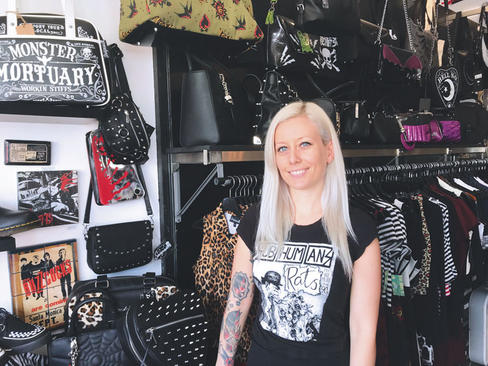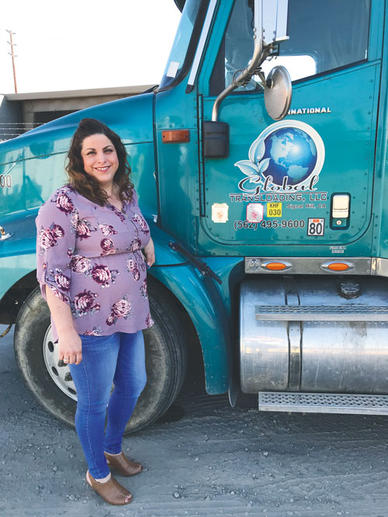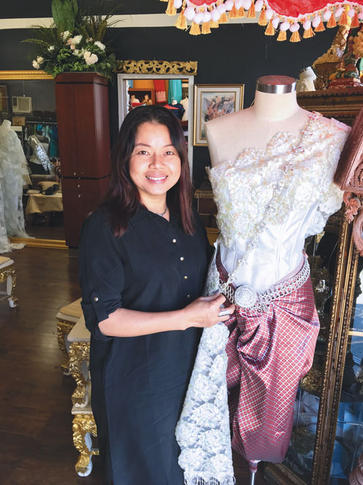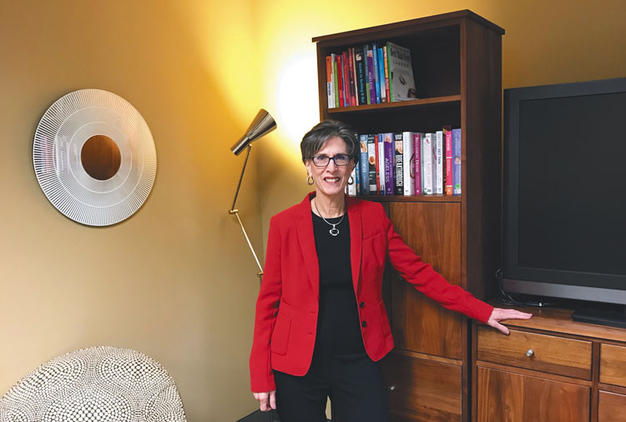At the beginning of 2018, women made up approximately 26% of business owners in the U.S., according to the results of a survey by Guidant Financial, a firm that funds small businesses, and LendingClub. LendingClub is an online platform that connects borrowers to investors for personal and business loans. Out of the 2,600 current and aspiring entrepreneurs who responded, the survey found female business owners increased 18% from the previous year. This continues the upward trend of women owning businesses in the past 20 years, according to the 2017 State of Women-Owned Business Report by American Express OPEN.
The American Express report found that the number of women-owned businesses has increased 114% in the last two decades compared to the overall growth rate of 44% for all businesses nationwide. As of January 2017, 11.6 million woman-owned businesses existed in the United States. They employed approximately nine million people and generated more than $1.7 trillion in revenue.
But while entrepreneurship among women has surged in the last two decades, businesses owned by minority women have skyrocketed. The report found that these enterprises expanded by 467%, four times more than the overall rate of women opening businesses in the same time frame. As of 2017, ethnic minorities comprised 46% of all women-owned businesses. They totaled around 5.4 million businesses and generated approximately $361 billion in revenue.
The Guidant Financial survey found that the biggest reasons women started their own business was to pursue their passion, become their own boss or because the opportunity simply presented itself. This echoes the motivations of four Long Beach female entrepreneurs, all representing diverse backgrounds and fields. These women all hope to expand their enterprises, and each expressed a desire to fulfill an unmet need in their community. The owners of Khmer Bridal Boutique, DeadRockers, Sklar Center for Restorative Medicine and Global Transloading, LLC, have begun the new year with optimism.
Lindsay Shaver
DeadRockers
1023 E. 4th St., Long Beach • 424/777-3228

When Lindsay Shaver was 18 years old, she started her own business dedicated to punk rock music culture. She was having trouble finding a place to buy alternative music and clothes in the South Bay area.
“I took matters into my own hands and started sourcing brands and finding cool stuff to sell,” she said. “I used to have booths at punk rock and roller derby shows – any place that let me set up.”
Shaver promoted her products through the social networking website MySpace before launching her own website one year later. Her efforts have grown into DeadRockers, a shop that sells vinyl records and patches from bands as well as novelties like coffin-shaped shelves and a teacup emblazoned with the word ‘poison.’
“It’s like teenage me’s dream,” Shaver said. “There are so many kids who come in that I’ve made friends with. There’s one girl who’s 15 now who has been coming in since she was in the seventh grade. We showed her how to add studs to her jacket.”
Shaver, whose favorite bands are The Clash and the Ramones, decided to set up shop in Long Beach because of its thriving music scene and acceptance of alternative culture. She mentioned that Fern’s Cocktails and Alex’s Bar, both located near 4th Street, were hot spots for punk rockers. Flyers from shows line the ceiling at DeadRockers; many of these shows took place at Fender’s Ballroom, an iconic rock music venue in Long Beach in the 1980s.
“A lot of times older people who went to these shows will come in,” Shaver said. “I think it’s really cool that it [DeadRockers] appeals to all ages. We’ll see kids who are 12 who want to buy their first punk rock record and then people in their 60s who remember the bands.”
As a female in the punk rock community, Shaver has faced the misconception that her husband owns the store. In fact, he is a carpenter who built the coffin shelves.
“I think it’s hilarious, but kind of flattering that people assume that only a man could do it,” Shaver said of owning her business. “I take it as a compliment.”
Even with competition from online retailers, Shaver has found that having her own shop has built up trust among her customers. She said she hopes to open a second location.
Shannon Griego
Global Transloading, LLC
1842 E. 29th St., Signal Hill
562/495-9600 • www.globaltransloading.com

Shannon Griego, the owner of construction waste-hauling company Global Transloading, LLC, learned her trade during a 17-year stint in the army.
“I was a transportation manager,” she said. “When I came to California I saw there was a big need for it here. I worked for other waste and construction companies and they always struggled when it came to how to dispose of and transport large volumes of waste.”
Griego also observed these companies missing opportunities to win some contracts, since the owners did not qualify as disadvantaged. The United States Department of Transportation (DOT) reserves 10% of its contracts for minority and women-owned businesses under its Disadvantaged Business Enterprise (DBE) program, according to the DOT website. The California Department of Transportation has also committed to awarding 12.5% of its federally funded projects to DBEs.
“The people I worked for in the past didn’t fit that criteria,” she explained. “Women don’t go into construction. I fit everything: disadvantaged, woman, minority, so I just decided to try and do it.” She started the business 15 years ago.
Griego, who is half Hispanic and half Native American, said that now only a small portion of her business is made up of these federal contracts. In the South Bay, Global Transloading has contracts with Environmental Construction Group, Inc., the Port of Los Angeles, the Port of Long Beach, the Long Beach Airport and the City of Long Beach.
“My favorite part is the challenge,” Griego said. “There’s a lot of challenge in going out and forming relationships with people who might be out of my comfort zone.”
Sustaining the workflow and earning enough money to maintain her employees is a trying aspect for Griego. “Traditionally, construction is very cheap,” she said. “We have to be very selective in the jobs we do.”
As a female business owner in the construction industry, Griego has found that she faces a stereotype that women do not understand logistics. “We’re working with a trucking company where the owner calls and asks to speak to a male employee because the men know what’s going on. A lot of people will ask me if this is my father’s business,” she said, laughing.
Griego’s goal is to expand her company, which has 15 employees and 545 independent truck drivers who work with her as needed.
“We’re one of the largest waste haulers in Southern California,” she said. “Hopefully, we’ll grow into a large company and keep everybody happy at the same time.”
Kaylene Men
Khmer Bridal Boutique
2434 E. Pacific Coast Hwy., Long Beach
562/607-3130

Kaylene Men, the owner and founder of Khmer Bridal Boutique, moved to the United States as a Cambodian refugee when she was eight years old. Her family relocated during the country’s civil war, which took place between 1967 to 1975.
“The Cambodian government sent my father to Kansas for military training,” she said. “He was supposed to go back, but then the country fell and there weren’t any planes that went back to Cambodia.”
Upon finishing high school in Kansas, Men visited her sister who had moved to Long Beach. She fell in love with the city and decided to get a summer job at United Cambodian Community, a social services agency established to assist refugees. From there, she went on to become a gang counselor.
To combat the lack of identity she saw among the young people she mentored, Men started collecting Khmer artifacts to encourage a more positive image of her native country. Khmer is an ethnic group native to Cambodia. Their language, Mon-Khmer, is the country’s official language.
“There are a lot of stories to be told about Cambodia,” she said. “A lot of people only know about the negative things, like the gangs and the war. We brought a 2,000-year history, culture and food [to the U.S.] I started collecting things people gave me, like clothes and costumes. Through word of mouth, I became the person to go to for the Khmer collection.”
Men turned her collection into a gift shop, which she transitioned into a bridal boutique about two years ago.“A wedding has so many elements tied in like the institution of family, the music and the food,” she said. “It’s all connected to Cambodia. It ties the family and the social network together.”
Men said her favorite part of managing the shop is meeting people who are interested in Khmer culture. She has found that Cambodia has become more open to the world.
The most challenging aspect of operating her business, according to Men, is working in a niche market that is also seasonal.
“I volunteer in the community to get my services out there,” she said. “I work with people from Laos and Thailand because we share similar beliefs. I also have to keep up to date with the latest trends from Cambodia and bring them over here.”
In the future, Men said she’d like to start a gallery featuring Cambodian artists.
Dr. Susan Sklar
Sklar Center for Restorative Medicine
5000 E. Spring St., Ste. 402, Long Beach
Appointments: 562/294-4856.
Information: 562/596-5196 • www.sklarcenter.com

Dr. Susan Sklar, the founder and medical director of the Sklar Center for Restorative Medicine, started out as an obstetrician-gynecologist (OB-GYN), but decided to start practicing restorative medicine in 2007 when conventional health care failed to successfully treat some of her own health problems.
“We look for the underlying causes of disease rather than looking at the obvious symptoms,” Sklar explained. “A lot of factors interfere with our body’s ability to function in a healthy way, like our diets or toxins in the environment.” According to Sklar, restorative medicine approaches health from a more holistic standpoint. For example, she said she would examine the root causes of a patient’s depression or anxiety rather than prescribing an anti-depressant. Sklar often sees patients for gastrointestinal problems, hormone-related issues and autoimmune disorders such as rheumatoid arthritis and multiple sclerosis.
Another reason Sklar decided to change her specialization was because she grew tired of working with insurance companies. “I got burned out by all the regulations and paperwork,” she said. “Dealing with insurance companies takes a lot of attention away from patients.” She now operates a cash-based practice.
When Sklar was trying to launch her OB-GYN practice in 1984, she found it challenging to open a bank account. “I wasn’t made to feel welcome at the bank,” she reported. “We were two young women. I was 35 and my partner was the same age. They just did not take women seriously.” Another challenge was the process of maintaining her own practice. “You go to medical school and you learn about medicine but you don’t learn how to run a business,” she said.
Sklar said engaging with the public is one of her favorite parts of operating her practice. This summer, she plans to teach a six-week course, “Maintain Your Brain: The Five Pillars of Alzheimer’s Prevention,” through the City of Lakewood Recreation & Community Services Department. “I’m always trying to be creative and think of ways to get my message out,” Sklar said. “People aren’t familiar with this kind of medicine. I won’t be listed in someone’s insurance book or online plan.”
Sklar currently employs three practitioners and said she hopes to bring in more. “We combine the best in conventional medicine with the emerging technologies in restorative medicine,” she said. “We don’t just put a label on somebody, we just let the story unfold and based on that we find the clues that will help us get to the root of the problem.”
